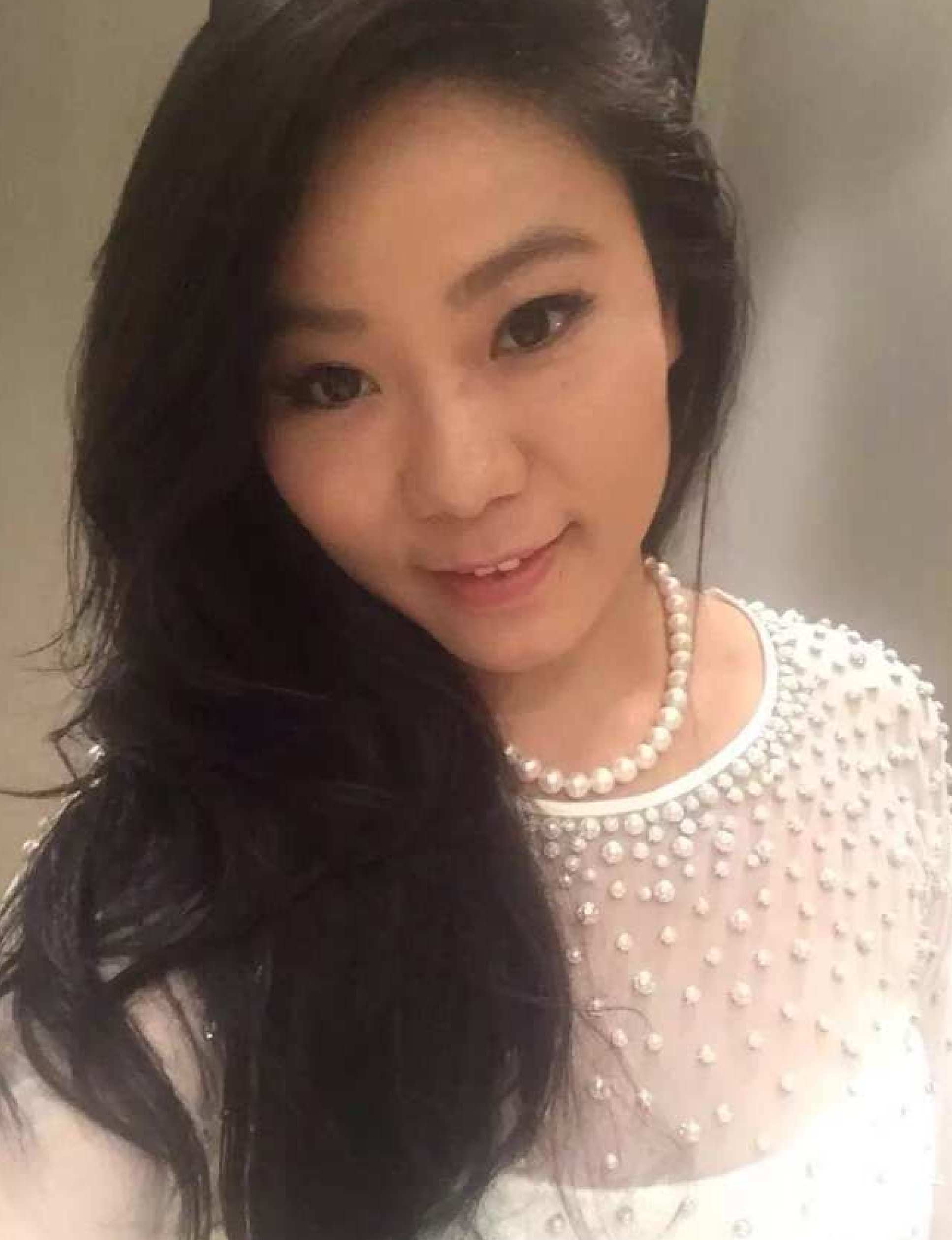Imperial alumni: The entrepreneurs making waves in China’s Greater Bay Area

China’s Greater Bay Area is home to renowned tech giants like Tencent and Huawei, as well as some of the world’s most exciting entrepreneurs.
Many of the brightest minds behind these tech startups are Imperial alumni.

We spoke with some of Imperial’s innovative alumni in the Greater Bay Area to find out why the region is so popular with technology startups and how Imperial set them on the path to entrepreneurship.
Zoe Niu – CFO and co-founder, Ricequant

Imperial alumna Zoe Niu (Mathematics 2005) is the CFO and co-founder of Ricequant, a financial tech quantitative trading system for clients such as hedge funds, banks, and securities.
Zoe started Ricequant just over three years ago and now employs more than 70 staff and has offices in Shenzhen, Hong Kong and Beijing. Zoe is also the Vice President of the Imperial College Alumni Association of South China.
Why did you become an entrepreneur?
“When I as at Imperial I took part in an entrepreneurship competition and since then entrepreneurship has been in my blood.
"It’s one of the reasons why I wanted to set up my own business.
“I have had my company for three and a half years and there have been challenges along the way.
“But now is one of the best times in the last 20 years to be on entrepreneur in China and start a company. It’s a very exciting time.
“China’s market provides the environment and chance to do something but it is very competitive and you have to be prepared, so entrepreneurship is not easy.
Why did you choose to set up in Shenzhen?
“Shenzhen is one of the best cities in China for entrepreneurship. While Shanghai is known as the financial centre and Beijing the political capital, Shenzhen is the Fintech hub, and is compared to Silicon Valley.
“We’re based at the tech science park, among innovative companies like Tencent.
“Imperial alumni are building a strong network in Shenzhen and we meet up together all the time and help each other.
Why should students choose Imperial?
“Imperial is well known globally and has a very good reputation here for professionalism.
“I have had Imperial students work for me because I know they are highly skilled.
“Studying at Imperial was one of the best experiences of my life. I made friends for life and have a lot of fond memories from my time there.
“From a professional perspective, my mathematics degree was very related to what I’m doing now, so has helped enormously.”
Rory Ryan, Zio Health
 Imperial alumnus Rory Ryan (MSc Innovation Entrepreneurship & Management 2016) is the COO and Co-Founder of Zio Health, a medical device startup based in Shenzhen. Rory completed a Masters in Innovation, Entrepreneurship & Management at the Business School. While studying at Imperial, Rory met co-founder Shaolin Liang.
Imperial alumnus Rory Ryan (MSc Innovation Entrepreneurship & Management 2016) is the COO and Co-Founder of Zio Health, a medical device startup based in Shenzhen. Rory completed a Masters in Innovation, Entrepreneurship & Management at the Business School. While studying at Imperial, Rory met co-founder Shaolin Liang.
Why did you become an entrepreneur?
“I’ve always loved inventing and building stuff and medical technology was a really interesting area. I was inspired by superheroes and Sci-Fi, which got me interested in robotics and prosthetics.
“My plan was to do something in medical technology area and I joined Imperial because I wanted to find a good business partner.
“I knew Imperial was one of the best institutions in the world for science and engineering and developed a lot of new innovations. When I arrived I was pretty blown away by the calibre of people and their ideas.
"While studying at Imperial I built up a good network of contacts and met Shaolin, who was working on a new type of biochemistry sensor.
What does the business do?
“We’ve developed a pocket sized body fluid analyser – using a new technology – which allows us to take the technology from a hospital lab and shrink it down into something small and easy to use.
"We’ve got it really small and we can test lots of different fluids such as blood, saliva and urine.
"Our technology can also be used to analyse food content and our first product for the Chinese market will be used by parents to analyse baby nutrition and can test breast milk, baby food, water and powdered milk.
How did Imperial help you progress your ideas?
“What’s unique about Imperial is you have top world-leading scientists and engineers in an atmosphere which encourages innovation. People can take their ideas from the lab and turn it into a business.
“We entered the Venture Catalyst Challenge which really helps you refine your idea and think about the key things that are most important.
Why did you choose to set up in Shenzhen?
“We were offered the opportunity to join the HAX accelerator in Shenzhen to take our idea forward. Shenzhen is the best place in the world for hardware development and has a strong industry in electronics. We can make and test prototypes very quickly here.”
Dr Shaolin Liang, Zio Health
 Rory's co-founder at Zio Health is Shaolin Liang (MRes Chemistry 2013) who is CTO and also an Imperial alumnus. Originally from Guangzhou, Shaolin completed a joint PhD between Imperial and the University of Hong Kong and a Masters at Imperial in Drug Discovery and Development.
Rory's co-founder at Zio Health is Shaolin Liang (MRes Chemistry 2013) who is CTO and also an Imperial alumnus. Originally from Guangzhou, Shaolin completed a joint PhD between Imperial and the University of Hong Kong and a Masters at Imperial in Drug Discovery and Development.
Why did you become an entrepreneur?
“While I was studying at Imperial I participated in the Venture Catalyst Challenge and various other projects before getting into Zio Health.
“I’ve always had a passion for inventing things but Imperial helped me become an entrepreneurial person and learn more about the business side of things.
“When I met Rory we had the idea of forming a project to do something in the area of bio sensing – because I have expertise in that area.
What appealed about setting up business in China?
“We got an offer from HAX, an accelerator in Shenzhen, supported by SOSV, and because I’m from China and familiar with the market there, we felt there was good potential if we moved the business there.
“Shenzhen only really came to the fore 20 years ago but it is becoming a tech hub for big data and artificial intelligence.
"It is becoming a popular place for Imperial students because it’s very dynamic and has one of the larger western populations in China.
"It’s a good place if you want to maintain the innovative and collaborative atmosphere.
How did studying at Imperial accelerate your entrepreneurial journey?
“What appealed to me about studying at Imperial, compared with Oxford or Cambridge, is it has a more multidisciplinary approach.
A lot of the research programmes require you to have two supervisors from different disciplines, such as chemistry and computing.
"This concept is very important for applied science, which is a bit different to the more theoretical approach at Oxford or Cambridge.
“My supervisors were very supportive in terms of entrepreneurial projects and participating in events organised by Imperial Innovations gives you great experience.”
Imperial's network of innovators in China
Imperial has a growing alumni network in China with more than 7,000 former students now based there.
Based in Shenzhen, Anson Wong (MSc Electrical and Electronic Engineering 2006) is the CEO of Acadsoc, the largest online platform for teaching English in China.
Also based in Shenzhen are Stephen Huang (Materials 2009), the CEO and co-founder of SimplyWork, a company which provides shared working spaces, Joy Jiang (MSc Electrical and Electronic Engineering 2012), the CEO of Fintech star, a financial technology and cyber security company and Jerry Liu (MSc Finance 2015) the CEO of Goldwood, who have developed an 'AI teacher' designed to better analyse students' performance and to set work to improve results.
Catherine Chan (MRes Medical Robotics and Image Guided Intervention 2015) co-founded MedEXO Robotics while at Imperial. Now based in Hong Kong Science and Technology Park, they develop wearable robotics for patients with tremor-inducing neurodegenerative conditions like Parkinson’s disease.
Also based in Hong Kong are Hubert Li (Mechanical Engineering 1998), Managing Director of wine merchant Wine Vault, Jaclyn Tsui (Biology 2008), Partner of Altitude Labs, a web and mobile app development and UI/UX design firm, and Kevin Lam, (Electrical & Electronic Engineering 1996), Managing Director of knitwear manufacturer Knit Plus Limited.
There are three official alumni groups in China – Imperial College Alumni Association of China (Beijing), Imperial College Alumni Association of South China (Shenzhen) and Imperial College Alumni Association of East China (Shanghai).
Article text (excluding photos or graphics) © Imperial College London.
Photos and graphics subject to third party copyright used with permission or © Imperial College London.
Reporter
Stephen Johns
Communications Division